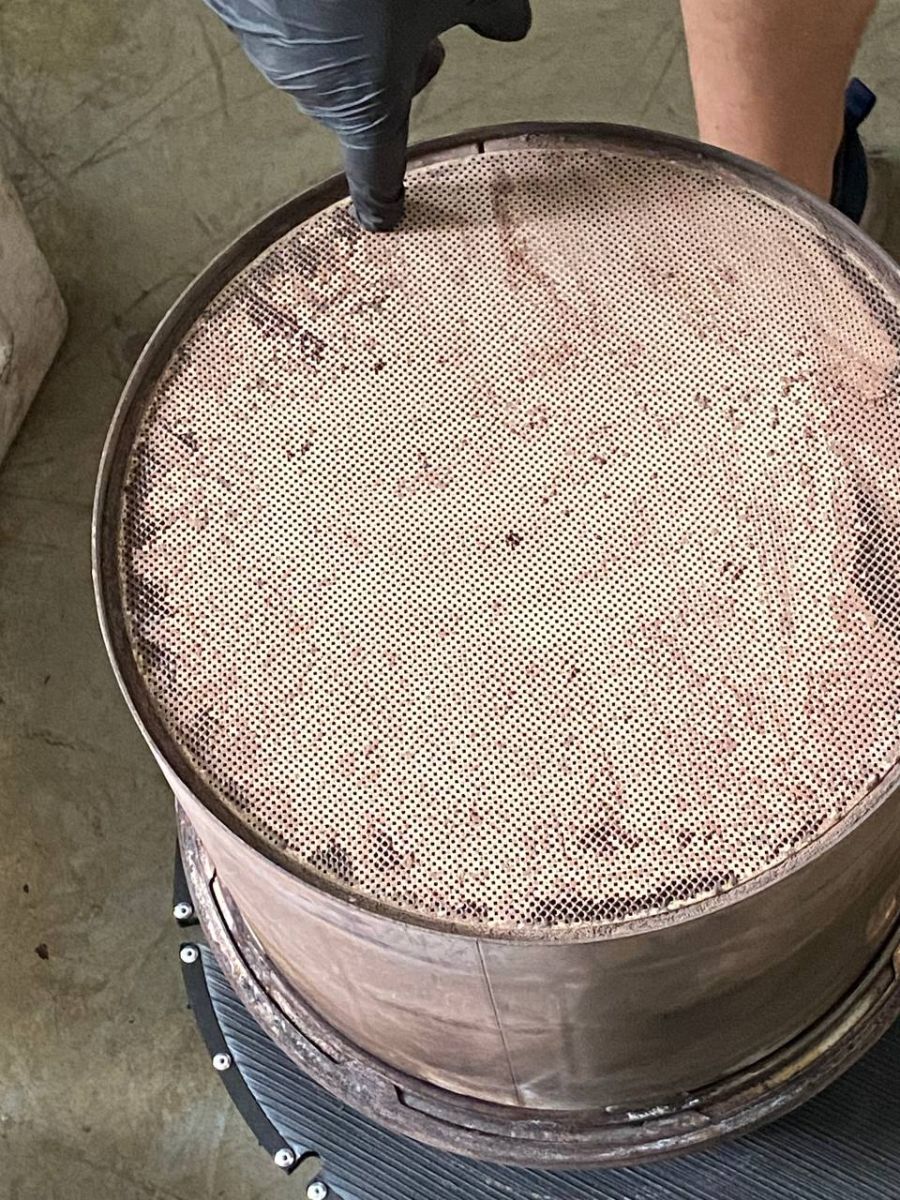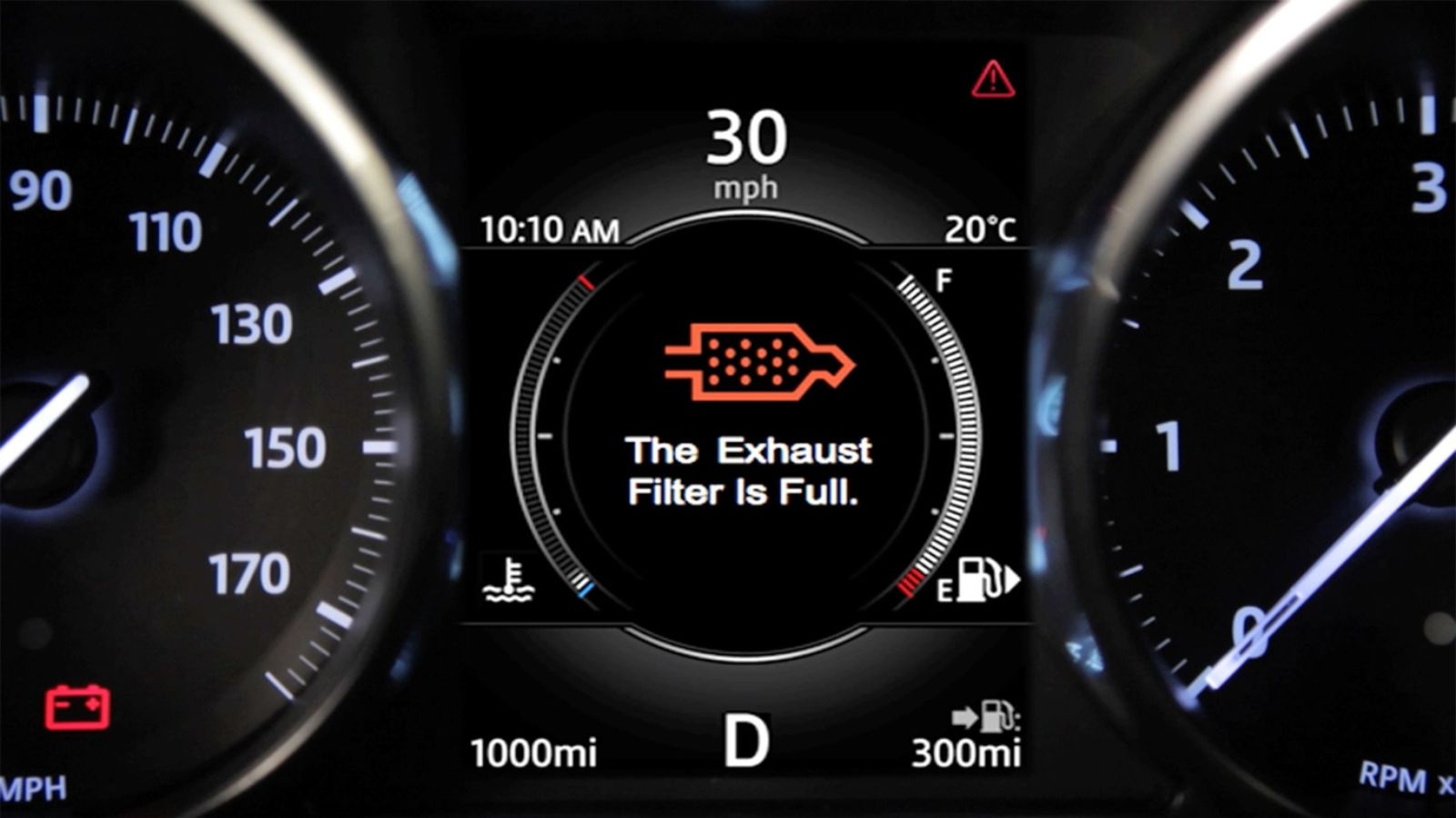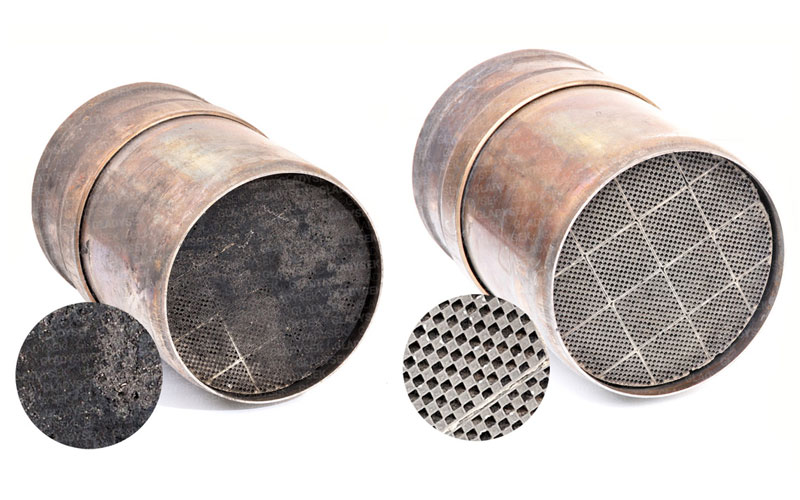How Long Will a Diesel Particulate Filter Last After Cleaning?

Diesel particulate filters (DPF) have been installed in diesel-powered vehicles for quite some time. Since 2018, they have also become mandatory for gasoline vehicles in Europe. Regardless of the engine type, the potential issues and consequences associated with DPFs are the same. In the event of critical clogging, it becomes impossible to operate the vehicle.
Common methods used to clean a DPF include:
- Forced regeneration. This can be performed at a service station or independently using special diagnostic scanners (e.g., Launch, Autel, VCDS).
- Chemical cleaning. This method involves using a special DPF cleaner that is sprayed directly into the filter, followed by forced regeneration.
- DPF cleaning with removal and washing using water or special solutions. This is done at a service center using specialized equipment.
Washing a diesel particulate filter (DPF) is considered one of the most effective cleaning methods, as it removes not only soot but also ash—a factor that renders the filter useless and cannot be eliminated through forced regeneration.

However, many vehicle owners ask the key question: "How long will a DPF last after cleaning?" Before answering this, let’s first look at how long a new DPF is supposed to last.
Lifespan of New DPF Filters
Most online sources estimate the service life of a DPF to be between 100,000 to 150,000 miles (161,000–241,500 km). Official car documentation may provide the following data:
- Warranty obligations. Manufacturers typically offer a warranty for the DPF of 36 months or 100,000 km. Some automakers specify that the warranty does not cover parts subject to natural wear and tear, including DPFs.
- Inspection intervals. Suggested checks may be scheduled at 180,000–210,000 km initially, and then every 10,000–30,000 km, or every 10,000–15,000 km from the start of vehicle use.
There are also studies evaluating the durability of DPFs. For example, one study assessing performance and longevity of DPFs in a fleet of Peugeot 607 taxis showed stable filter efficiency after up to 80,000 km in urban conditions. Another study on heavy-duty vehicles found consistent performance after up to 340,000 miles (about 547,000 km).
Service manuals from manufacturers do not specify the mileage at which a filter becomes fully clogged. Instead, they provide a different criterion for DPF replacement: the “maximum soot mass in the filter,” which can range from 40 to 90 grams depending on the make and model. This is because the DPF’s lifespan is more influenced by vehicle usage conditions and engine condition than by mileage alone. However, the older and more worn a vehicle is, the more likely it is that the engine’s poor condition will cause premature DPF clogging.

Factors Affecting DPF Lifespan
Key factors influencing the service life of a DPF include:
- Fuel Quality
Using low-quality fuel with high sulfur and impurity content leads to rapid filter clogging. - Use of Suitable Engine Oil
Special low-SAPS oils (low in sulfate ash, phosphorus, and sulfur) reduce ash buildup in the filter and extend its life. - Overall Engine Condition
Worn injectors or turbochargers can increase soot emissions and accelerate DPF contamination. Malfunctions in the thermostat or EGR valve can prevent soot regeneration from occurring, leading to very rapid clogging. - Driving Patterns
Frequent short trips promote faster clogging. In contrast, extended city driving has a relatively minor impact, while long highway drives facilitate filter regeneration.

DPF Lifespan After Cleaning
The lifespan of a DPF after washing depends on even more factors. In addition to those listed above, the following also matter:
- Service Quality
The effectiveness of DPF cleaning directly depends on the accuracy and thoroughness of service personnel. A precise diagnosis must be conducted, and the root cause of clogging must be resolved. - Quality and Effectiveness of Cleaning Equipment
Our experience shows that effective DPF cleaning is only possible with periodically reversing and turbulent flow during washing.
As a result, it is impossible to give even an approximate answer to how long a DPF will last after washing. Typically, service stations that clean DPFs for passenger vehicles offer a 1-year or 40,000 km warranty. However, a filter can last significantly longer if premature clogging is prevented by using high-quality fuel and oil and maintaining the engine in good condition.
Conclusion
Cleaning the diesel particulate filter can significantly extend its service life, especially if the cleaning was performed using high-efficiency equipment and the cause of clogging was addressed by qualified personnel. When choosing the MS900 DPF cleaning stand, you not only get thoroughly cleaned filters, but also maximum automation of the cleaning process, as well as cleanliness and order in the workspace.








